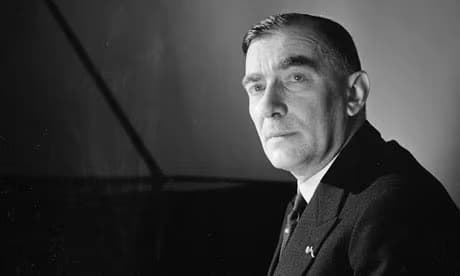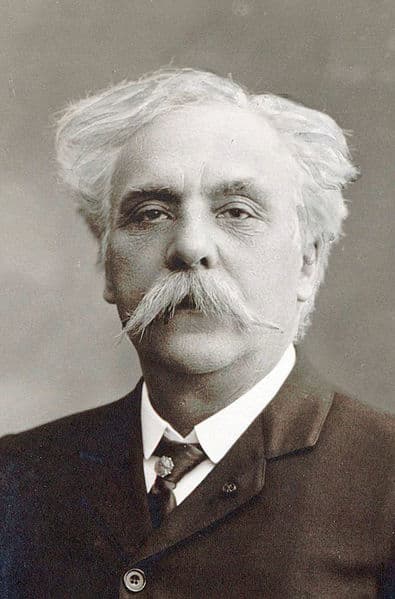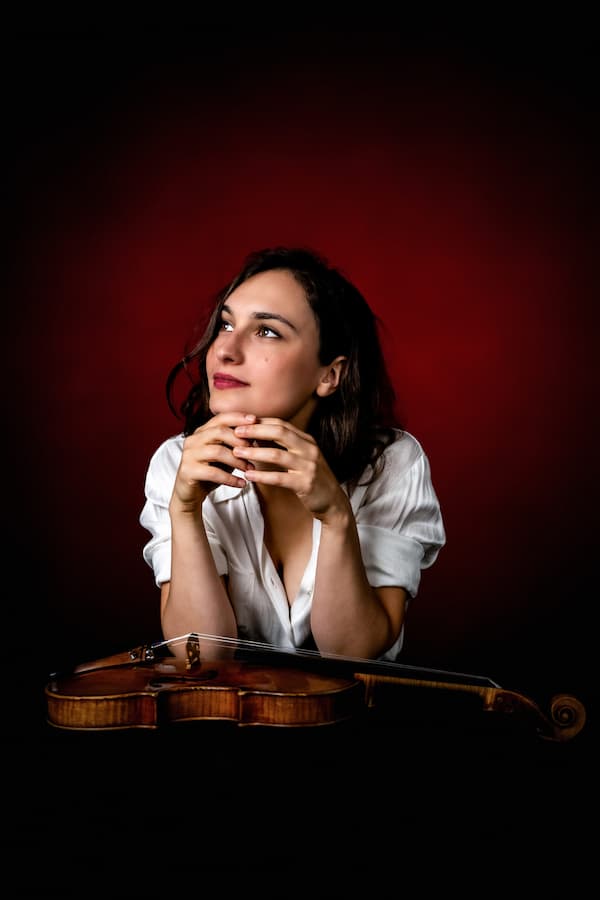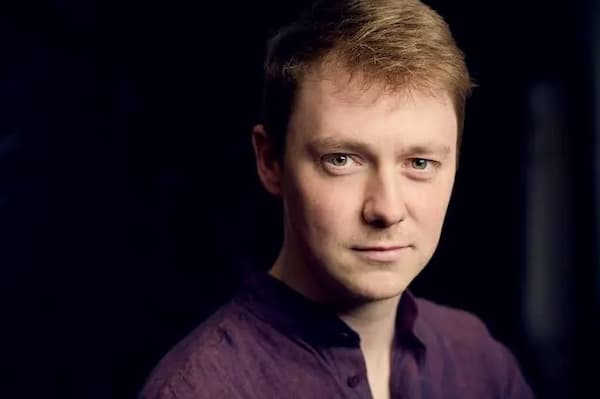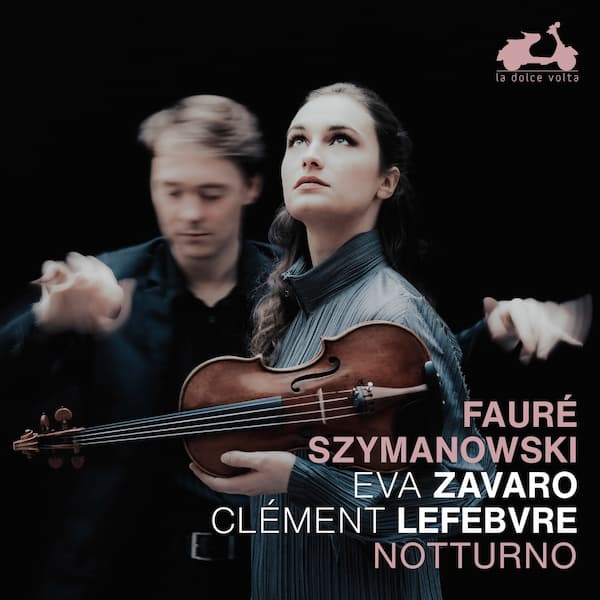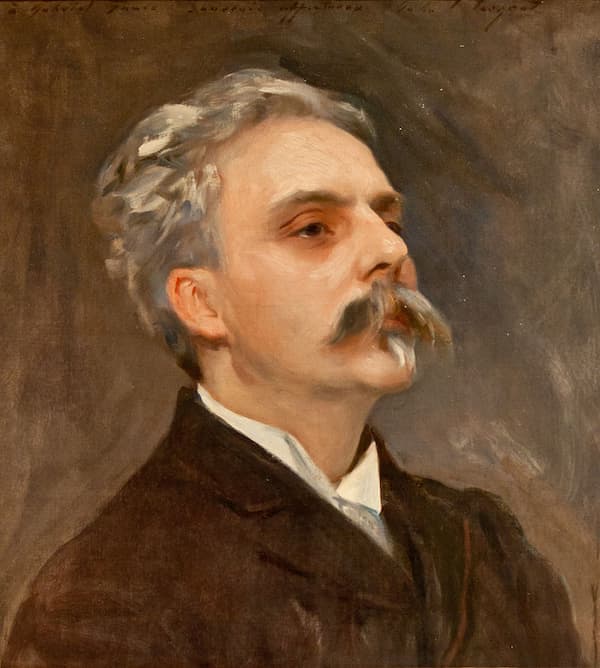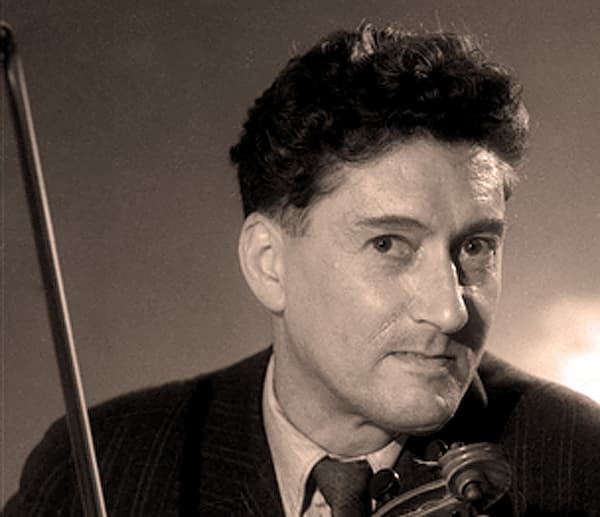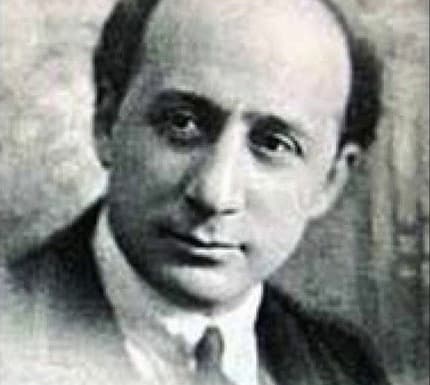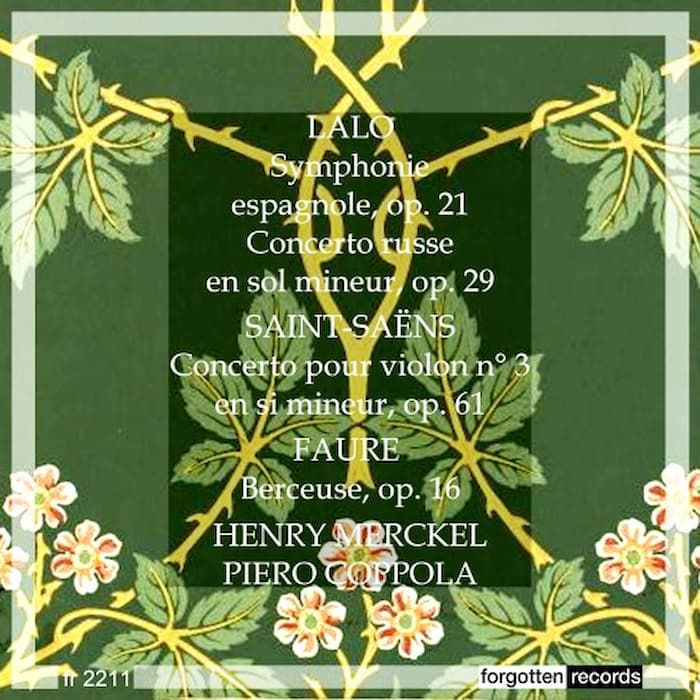Multiple studies show that music can do wonders for our mental health. So which pieces do we turn to when times are tough?

David soothes King Saul’s troubled mind with his lyre © Getty
Music cannot work a magic spell. It can, however, do wonderful things. In recent issues of BBC Music Magazine, we have explored the benefits to mental health of listening and playing music, not least when it comes to alleviating depression, though in fact this is a subject that has been addressed literally centuries ago – Greek philosophers Plato and Aristotle both discuss it, and the Old Testament (1 Samuel 16: 14-23) tells of how David’s skills on the lyre would ease King Saul’s troubled mind.
So, taking the science and anecdotal evidence as read, let’s turn to the here and now. What pieces do people turn to during difficult times, when spirits are low? For some, the way out of the abyss may lie in something light and upbeat, for some it might be something soothingly placid, while others turn to something empathetically sorrowful. Here, four BBC Music writers, plus the magazine’s own editorial staff, share their choices of works to alleviate the gloomiest of times.
Read on to discover the music that helps us through difficult times...
Vaughan Williams: Symphony No. 5 – Romanza
It may sound counterintuitive, but when going through difficult times I have always found that listening to slow, meditative, even melancholy music helps me to work through that negative emotion rather than attempting to mask it with lighter, brighter fare. If ever I’m in need of a good, cleansing cry, listening to John Williams’s score for ET will absolutely do the trick – just a few bars are enough to bring tears to my eyes.
But for something deeper – even spiritual – I turn to Vaughan Williams’s Fifth Symphony and the third movement Romanza, which not only conveys a poignant feeling of nostalgia, but an uplifting sense of beauty. It’s that modal tension between major and minor – or, in other words, between sadness and joy – that allows me to experience unhappiness and loss, couched in an elegant structure. The essence of catharsis.
For the ultimate recording, I turn to Bernard Haitink conducting the London Philharmonic Orchestra (EMI Classics, 1995). Haitink doesn’t allow himself to wallow in emotion, his tempos perfectly poised – so that VW’s homage to a world gone forever never descends into schmaltz.
Charlotte Smith
Mahler: Rückert-Lieder – ‘Ich bin der Welt abhanden gekommen’
A death foretold enables grief to secure a head start. How to navigate it? Nothing quite equals music in teaching us how to reconcile with impending loss. The Requiem aeternam from Duruflé’s Requiem, Fauré’s seraphic setting of the In Paradisum and the obligato-oboe-enriched opening aria of Bach’s Cantata BWV170, ‘Vergnügte Ruh’, all invited spiritual solace; but in the event, secularism won out as Mahler, enshrined in the symbiotic sublimity of mezzo Janet Baker and conductor John Barbirolli, plus the poetry of Rückert at its most simply distilled, became an inescapable, endless, go-to. ‘Ich bin der Welt abhanden gekommen’ (I am lost to the world) from the Rückert-Lieder is a heartfelt leave-taking swaddled in tenderness and reassurance. Orchestrally enlarged, beseeching cor anglais and anchoring harp already tremble on the edge of eternity before Baker floats the vocal line with a radiant serenity that intensifies with every passing bar. The final lines, as Rückert rests at last ‘in my heaven, in my love, in my song’, are achingly poignant – the perfect musical incarnation (without the ambiguity) of Philip Larkin’s conclusion to his poem ‘An Arundel Tomb’: ‘what will survive of us is love’. Forty years on, goodnight mum!
Paul Riley
JS Bach: Violin Partita No.2 – Chaconne
I don’t remember the first time I heard the Bach Chaconne, but I do remember how it made me feel. The monumental fifth movement from the Violin Partita No. 2 – its duration surpassing the previous four movements combined – demands complete surrender from its listener.
Its tortured opening chords hurl you into a world of exquisite pain, and through its meticulous structure – a series of variations of varying harmonic and melodic complexity – it becomes one long cry of anguish. The Chaconne, particularly in Jascha Heifetz’s 1971 recording, feels like it encompasses every pain in the world. Some believe that Bach composed it in mourning his wife, but whether that’s true or not, for me it has always signalled a sense of shared universal tragedy; it tears you open so you can start to heal.
- In the midst of the piece’s outcry, D minor becomes D major, and, in that moment, you can breathe. That temporary respite offers a hope that even in heartbreak, everything might be okay. The Chaconne has always prompted in me a process of release; its passages encompass the confusion and desperation of grief yet somehow offer a sublime solace and freedom in embracing it. Violinist Joshua Bell described it, beautifully, as ‘one of the greatest achievements by any man in history… a spiritually powerful piece, emotionally powerful, structurally perfect’.
Miranda Bardsley
L Boulanger: Psalm 130, ‘Du fond de l’abîme’
‘Never give up hope!’ says today’s received wisdom. But what if hope is the thing that keeps you stuck: by clinging desperately to the impossible, you rule out living the possible? That’s what struck me forcefully when listening to Lili Boulanger’s magnificent but disturbing choral-orchestral setting of Psalm 130, ‘Du fond de l’abîme’ – ‘From out of the depths’.
Stunningly gifted, lauded on all sides, Boulanger wrote it as she faced painful death at the age of just 24. There are moments of hope, but the French word ‘espère’ goes on a journey in which all radiance, all comfort is slowly wrung out of it. If the music weren’t so exquisitely beautiful, it would be unbearable.
What it did for Boulanger herself I can only guess, but for me, one wintry afternoon 15 years ago, it made me realise that my deeply troubled and troubling mother could never be the mother I’d always hoped she could be, and that for my sake – and perhaps also for hers – that hope had to die. As mezzo Ann Murray took up the desolate solo at the heart of ‘Du fond de l’abîme’, I thought I’d never stop sobbing. But it was a release, and if I’m now better able to face the world as it is, I owe that at least partly to Lili Boulanger.
Stephen Johnson
More music that helps us through difficult times...
Recomposed by Max Richter: Vivaldi – The Four Seasons
I did not know – nor care – what had happened to the sleeve. It was surplus to requirements: the record on the turntable had not been changed for some weeks. The process of choosing, and listening, to a physical album had become a treasured evening ritual, but at this point in my life, back in 2012, newness was unbearable. The risk of disappointment or displeasure was too great – in fact, any emotional response needed to be carefully managed. Music had to be upbeat (but not jolly, saccharine or too energising) and easy to listen to (but not easy listening), simultaneously raising a depressive mood and neutralising a higher one. The same went for books, films, food, conversations: selection had become an exhausting and dangerous chore.
Now, the familiar yellow centre spun on the record player, in the same way it had for many nights. Strings blurred with electric crackles; a well-worn violin melody etched its way into life. Max Richter’s reimagining of Vivaldi’s Four Seasons somehow fitted my nonsensical cultural brief, comforting in its familiarity yet with enough invention to maintain interest. It’s not a work that will induce tears, terror or toil, and that, in this context, was its strength. It remains in my collection – reunited with its case.
Claire Jackson
Rubbra: Symphony No. 5
In the later years of her life, deliberately though now unhappily single, my mother leaned on me heavily – for solace, for company, for daily communication. I found myself wrestling with a lot of different feelings, including guilt and sadness on her behalf, but also exasperation at her daily demands on my time and energy. I also found my emotional resources constantly depleted in the quest to reassure her that she’d be OK – that I was here.
During this period, I sought out music of peace and contemplation to recharge my fast-draining emotional batteries. And I found that the symphonies of Edmund Rubbra provided just the calm and pause for nourishment that I needed. A deeply spiritual man, Rubbra wrote music of inner stillness, balance and contemplation, rather than drama or showmanship. Unlike many of his mid-20th-century contemporaries, he avoided angular dissonance and preferred flowing, modal harmonies that feel rooted in ancient chant and Renaissance polyphony.
Even his symphonies, though complex, rarely feel turbulent. Instead, they create a sense of spaciousness. And among them, the work that most often took me to a quiet, unhurried place was No. 5. Its final movement has an uplifting, meditative calm that can always renew me.
Steve Wright
More music that helps us through difficult times...
Rachmaninov: Piano Concerto No. 2
Whenever I feel down, I play Rachmaninov. Not just because his music offers a healthy dose of doom-and-gloom and allows for a good emotional wallow, but because his Second Piano Concerto holds a special place in my memory.
Let me take you back: I’d just joined an orchestra for the first time as a nervous and clueless young teenager with barely any experience of playing with other people. I had no idea what to expect, but it certainly wasn’t those opening piano chords, tolling like great bells, and then suddenly being swept along by the stirring, surging minor-key melody. More than that: I was playing that melody! And it wasn’t complicated – even a fledgling viola player like me could manage the basically stepwise writing. I went home totally overwhelmed by the experience. Who knew music could be like that?
The spark and thrill of discovering Rachmaninov for the first time has always stuck with me. It’s become a symbol of possibility: don’t give up now, because something totally unexpected that will change your life for the better could be just round the corner. Or at the very least, you might encounter a brilliant piece of music that can transport you to another place for half an hour.
Rebecca Franks
Tchaikovsky Symphony No. 6, ‘Pathétique’ – Allegro molto vivace
To be honest, when my spirits are at their lowest, I want to be surrounded by silence – playing music is likely to prove more of an irritant than a balm. There is, however, one exception: the third-movement march from Tchaikovsky’s ‘Pathétique’ Symphony, a reliable friend whose company I’ve enjoyed since my parents played it in the car when I was a youngster (LSO, Leopold Stokowski, coffee-coloured cassette case).
Right from the outset, it was all about the frisky main tune, based on a pair of perky perfect-fourth intervals and first played in full by the clarinet – which, as I’d sussed from the cat in Prokofiev’s Peter and the Wolf, is the orchestra’s most genial, happy-go-lucky member. I often found myself humming that tune to cheer myself up in gloomier moments – not least, as a boarder at the world’s most wretched choir school – and doing so still works its magic today.
Of course, I appreciate now that in the context of the whole symphony, and particularly the collapse into abject misery that follows, the third movement’s projection of optimism can be viewed as hollow or even desperate. However, my nine-year-old self didn’t see it that way, and – as a standalone piece, at least – it still defiantly says to my adult self ‘Cheer up, JP. There are better times ahead.’
